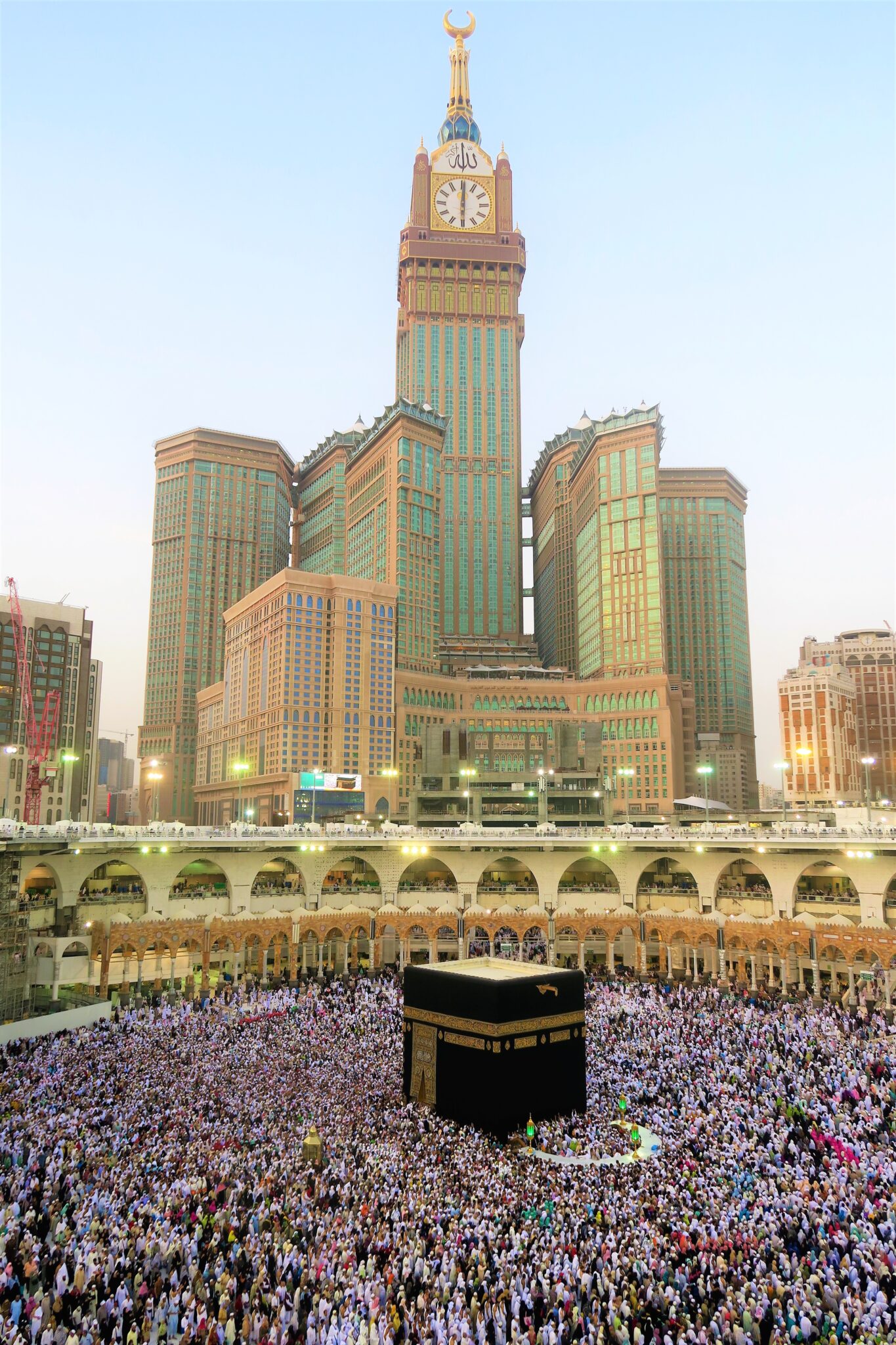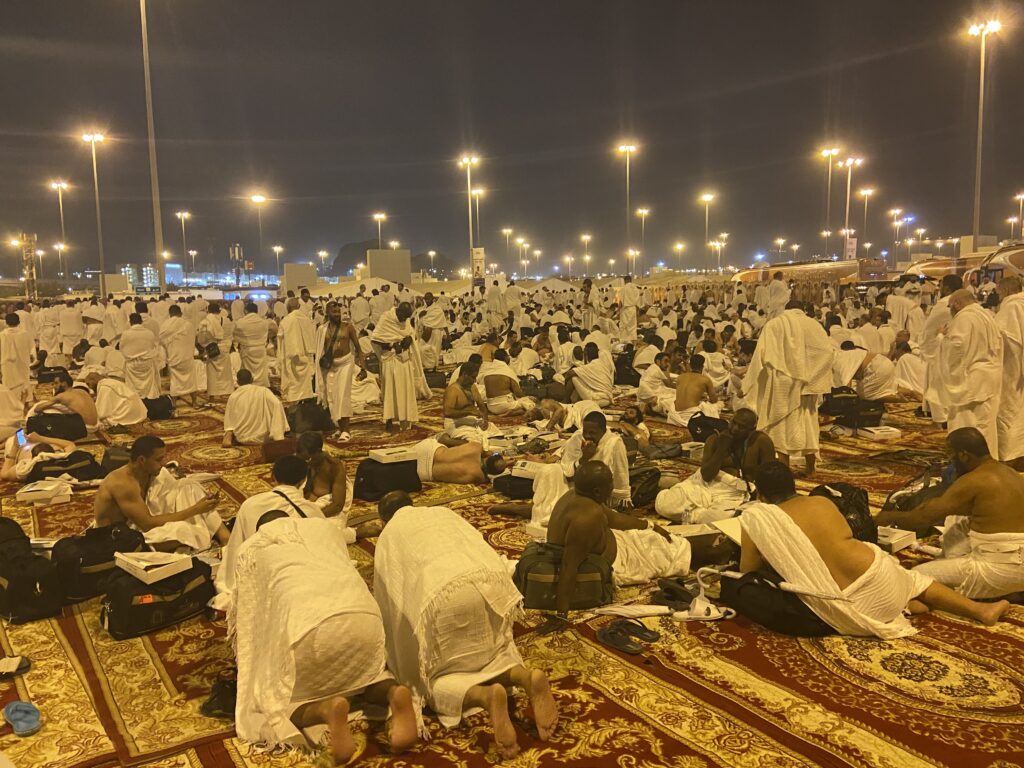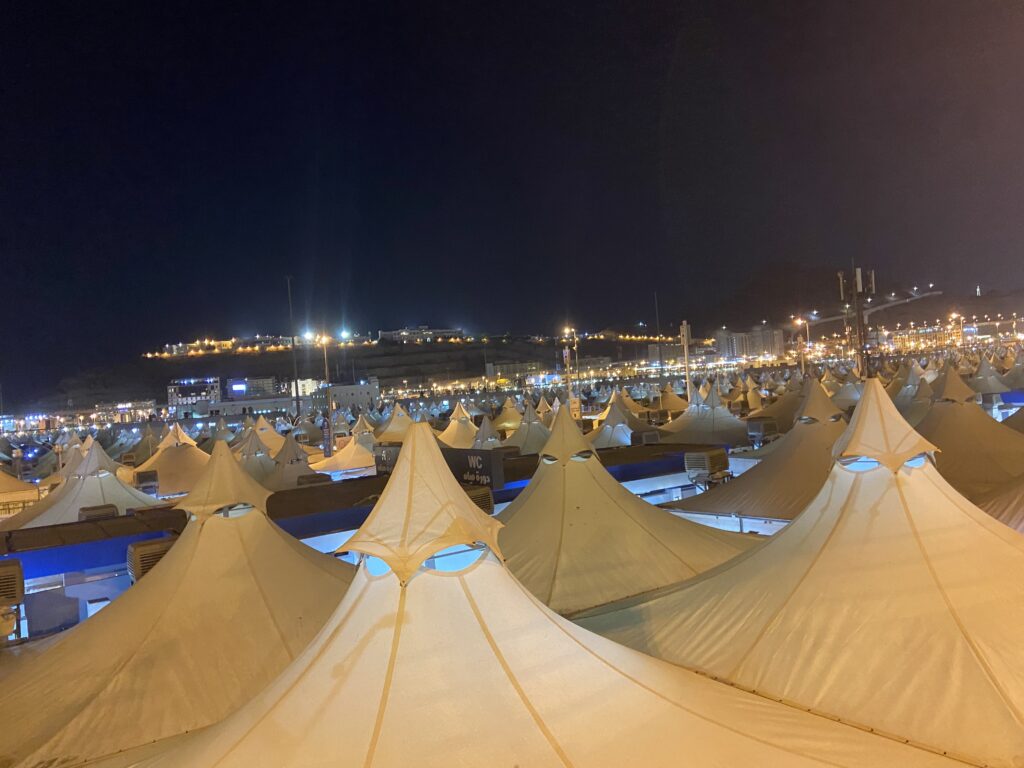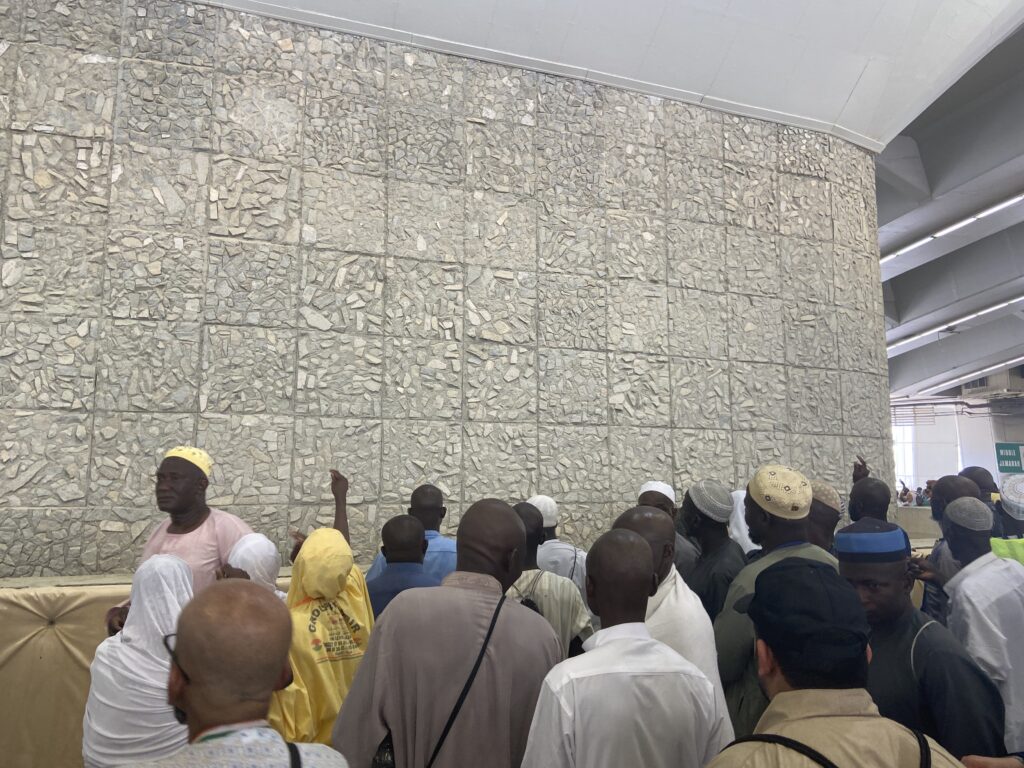This post is also available in: 日本語 Indonesia
The Path to Hajj: A Guide for Muslim Hajj from Japan
On June 27, 2023, Muslims around the world celebrated Eid al-Adha, one of Islam’s two major festivals. This festival is deeply connected to a significant Islamic ritual known as Hajj, which is one of the pillars of Islam.

Al-Haram Mosque and the Clock Tower, as seen from Makkah
In this article, we will explore the process and considerations for undertaking the sacred pilgrimage of Hajj from Japan, catering to the needs of the Muslim community residing in the country.
How to Join Hajj from Japan
With the increasing Muslim population in Japan, the desire to perform Hajj has grown among the local Muslim community.
Unlike in Islamic countries where limited slots are allocated each year for Hajj participation, and waiting periods of several years to two decades are common, Muslims from Japan can perform Hajj without a lengthy waiting period due to the smaller Muslim population.
There are two main methods to consider to plan your Hajj from Japan.
Purchasing a Hajj Tour Package from Private Travel Agencies
In Japan, several travel agencies offer Hajj tour packages for Muslim residents (with long-term visas for non-Japanese nationals). Prices and quality may vary, so inquire in advance. Before COVID-19, a 3-week package cost around 600,000 yen, but in 2023, it exceeded 1,000,000 yen.
Around 250-300 Japanese Muslims participated in Hajj tours in 2023 and stay in touch with the agency as Hajj visa requirements can change unexpectedly.
Reference
H.I.S Hajj and Umrah Japan (https://www.facebook.com/profile.php?id=100063698674221)
Invitation to Participate in Sponsored Hajj (for Japanese Muslim individuals)
In countries like Japan where the Muslim population is smaller, there is an option called “sponsored Hajj,” where individuals receive invitations to join.
Sponsored Hajj programs are organized by the Saudi Arabian government, Islamic organizations, embassies, and other entities. They cover most of the expenses, including hotel accommodations, for Japanese Muslim participants.
However, the specifics of the program, including the place of stay and activities, can vary, so it is essential to inquire and confirm in advance. It is estimated that around 30-50 Japanese Muslims participated in sponsored Hajj programs in 2023.
Note that sponsored Hajj arrangements often occur shortly before departure, so prior communication with relevant companies or organizations is necessary.
Hajj Itinerary and Important Destinations
Performing Hajj involves specific rituals, visits to important locations, and observances. While we won’t delve into the detailed procedures, here is a general overview of the main steps involved:
- Day 1: Enter the country with Ihram on and proceed to Mina.
- Day 2: Move to Arafat and stay until sunset, performing Zuhr and Asr prayers.
- Day 3: Stay in Muzdalifah (from dawn till sunset), proceed to Mina before sunrise, perform the ritual of stoning, then shave or trim some of the hair. Perform Tawaf and Sa’i (can be extended until sunset on the 5th day).
- Day 4: Stone the pillars at Jamrat and stay in Mina.
- Day 5: Stone the pillars at Jamrat and stay in Mina or proceed to Makkah.
- Day 6: Perform the stoning ritual if still in Mina, followed by Tawaf al-Wada’ (Farewell Tawaf).

Camp in Muzdalifa

Tents in Mina

The ritual of stoning
It is common to visit Madinah before or after Hajj to pay respects at the Prophet’s Mosque (Al-Masjid an-Nabawi) and engage in acts of worship.

Masjid Nabawi
Important Considerations for Hajj
Thorough Preparations
Ensure you are well-prepared with the necessary items for Hajj and familiarize yourself with the specific rituals and supplications (Du’a) to be recited.
For those participating in sponsored Hajj, the invitation may come just a few days before departure, so be mentally prepared for any sudden decisions regarding your Hajj journey.
Patience, the Most Important Asset
Hajj does not always go exactly as planned, with people from different cultures and mindsets gathering from all over the world. It’s important to understand that what may be considered normal or common in Japan may not be the same elsewhere.
Instances of accidental collisions during Tawaf, last-minute schedule changes, or queue-cutting while waiting for an elevator are part of everyday life during Hajj. Approach the journey with a broad-minded and patient attitude.
Health Management and Adaptation
Makkah welcomes 2.5 to 3 million Muslims worldwide, leading to a higher risk of viruses and diseases, in addition to the hot summer with temperatures up to 45-50°C which can weaken the immune system and cause illnesses.
Take good care of your health and know what to do if you get sick during your spiritual journey. Free medical consultations are available for most pilgrims, and some programs provide doctors.
Conditions, costs, and procedures for joining Hajj from Japan may change each year, so it’s best to check with specialized travel agencies for the latest details. Sponsored Hajj programs may have specific requirements and limitations to keep in mind.
See Also
Must See! This is How to Proceed Reverting to Islam in Japan (Mu’allaf)
The Revert Story of a New Japanese Muslim


